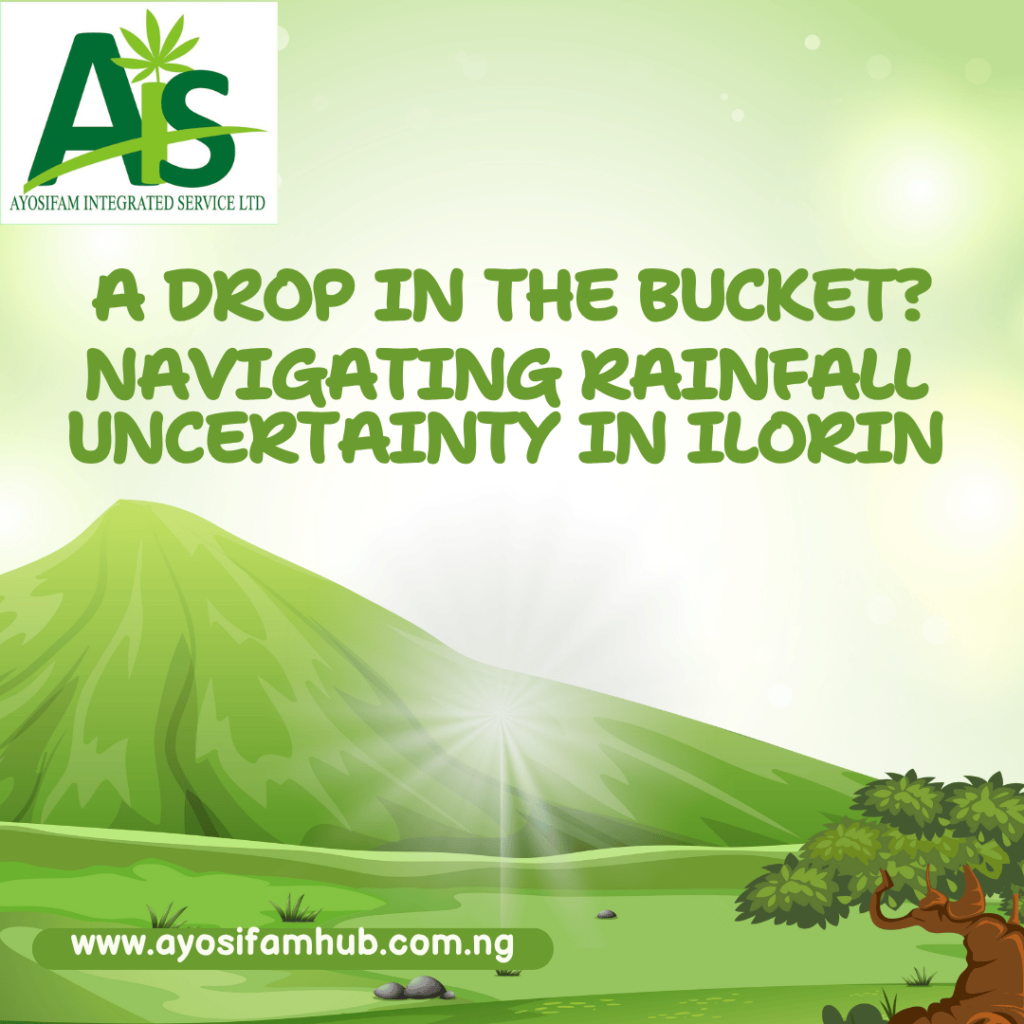
A welcome shower graced Ilorin, Kwara State, this morning, breaking a four-day dry spell. While any rain is often a cause for celebration among farmers, this recent sprinkle has sparked a mix of emotions, particularly after a period of significant drought. The sentiment among many is that farming is becoming an increasingly unpredictable venture, as the reliability of seasonal rainfall diminishes.
Mr. Ayo Lawal, a local farmer, voiced his frustration, sharing the unfortunate news that his newly planted potato vines withered and died due to the lack of rain. His bitter complaint echoes a growing concern: Is farming still a dependable business when we can’t depend on the rain?
For generations, Nigerian agriculture has largely relied on the rhythm of the rainy season. However, climate change has introduced an undeniable element of uncertainty. Rainfall patterns are becoming erratic, with extended dry periods punctuated by short, sometimes intense, downpours that may not be sufficient for sustained crop growth. This unpredictability directly impacts crop yields, farmer livelihoods, and ultimately, food security.
The challenges are clear, but so is the path forward. The time has come for farmers in Ilorin and across Nigeria to seriously embrace irrigation farming as a primary strategy, rather than solely waiting for rainfall.
Why the Shift to Irrigation is Crucial:
a. Reliability: Irrigation provides a controlled and consistent water supply, ensuring your crops receive the moisture they need, when they need it, regardless of rainfall patterns.
b. Increased Yields: With optimal water management, crops are healthier and more productive, leading to higher yields and better returns on investment.
c. Crop Diversification: Irrigation opens up possibilities for cultivating a wider variety of crops, including those that require specific watering schedules or are typically grown in wetter climates.
e. Extended Growing Seasons: It allows for planting and harvesting outside of the traditional rainy seasons, maximizing land use and income potential.
f. Climate Resilience: By reducing dependence on unpredictable rainfall, irrigation makes farms more resilient to the impacts of climate change.
While the initial investment in irrigation systems might seem daunting, the long-term benefits far outweigh the costs. From simple treadle pumps and watering cans for small plots to more advanced drip irrigation and sprinkler systems for larger farms, there are scalable solutions to suit different needs and budgets. Government initiatives, agricultural loans, and cooperative efforts can also play a vital role in making irrigation more accessible to farmers.
The recent light rain in Ilorin is a stark reminder that the old ways of farming are no longer sufficient. To thrive in this changing climate, we must adapt. Let’s shift our mindset from hoping for rain to actively managing our water resources. Irrigation isn’t just an alternative; it’s the future of sustainable and profitable farming in our region.
What are your thoughts on transitioning to irrigation farming? Share your experiences and questions in the comments below!



